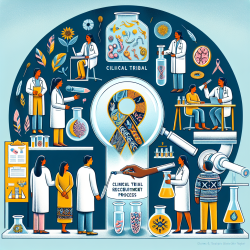Understanding the Gender Disparity in Noncommunicable Diseases
Noncommunicable diseases (NCDs) such as chronic respiratory diseases, cardiovascular diseases, and diabetes are significant contributors to global morbidity and mortality. However, the gendered nuances of these diseases often go unnoticed, leading to disparities in healthcare outcomes. The research article "When women win, we all win—Call for a gendered global NCD agenda" sheds light on the critical need for a gendered approach to tackling NCDs.
Key Findings from the Research
The study highlights that women face different risk factors and higher morbidity rates for certain NCDs compared to men. However, the predominant focus on mortality rather than morbidity often overshadows these differences. This oversight results in a lack of attention and resources directed towards addressing the unique needs of women, ultimately affecting the overall progress in reducing the NCD burden.
Recommendations for Practitioners
To address these gender gaps effectively, practitioners can implement the following strategies:
- Increase Representation: Encourage more women to take leadership roles in global health initiatives to ensure diverse perspectives in decision-making.
- Prioritize Marginalized Populations: Focus on NCD prevention and treatment among marginalized groups, ensuring that interventions are inclusive and equitable.
- Align with Established Movements: Integrate the gendered NCD agenda with other well-established health movements to amplify impact and drive systemic change.
- Incorporate Gender-Based Indicators: Develop and utilize gender-specific indicators and targets in NCD-related goals to better measure and address women's unique health risks and outcomes.
- Advance Gender-Based Research: Support and conduct research that explores the gender-specific aspects of NCDs to strengthen the evidence base and inform policy and practice.
Encouraging Further Research
Practitioners are encouraged to delve deeper into the gendered aspects of NCDs by engaging with existing literature and conducting further research. This will not only enhance their understanding but also equip them with the knowledge needed to advocate for and implement gender-sensitive healthcare interventions.
To read the original research paper, please follow this link: When women win, we all win—Call for a gendered global NCD agenda.










